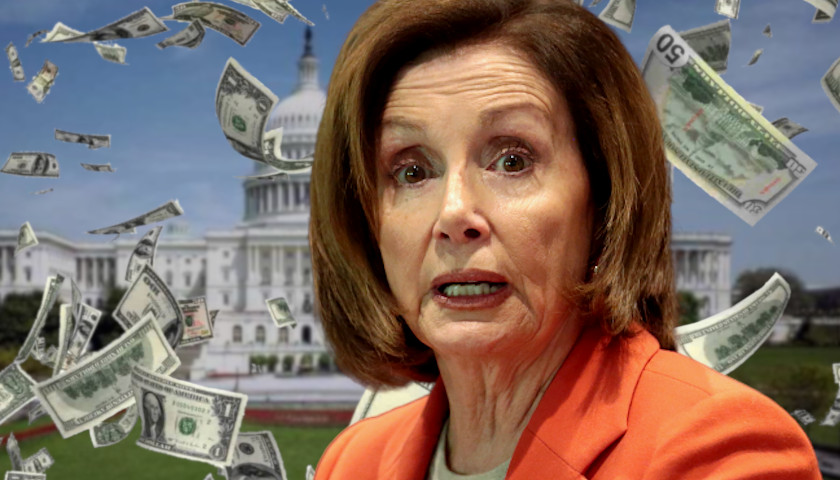by Dan McCaleb
The U.S. House of Representatives on Wednesday ratified changes the Senate made to a massive $1.9 trillion relief package that critics say contains hundreds of billions of dollars in wasteful spending unrelated to the COVID-19 pandemic.
With the 220-211 vote, almost exclusively along party lines, the measure now goes to President Joe Biden, who said he will sign it. One Democrat – U.S. Rep. Jared Golden of Maine, who also voted against the initial bill – voted against the measure Wednesday. No Republicans voted for it.
“The President will sign the bill at the White House on Friday afternoon,” White House press secretary Jen Psaki said at a Wednesday news briefing.
Biden pushed for passage of the nearly $2 trillion “American Rescue Plan,” which includes an additional $160 billion for vaccines and testing, $170 billion for schools and universities, another round of $1,400 individual stimulus checks for lower- and middle-income earners, an extension of $300-per-week supplemental unemployment benefits through Sept. 6 (reduced from $400 a week in an earlier House version), and a long list of spending unrelated to the pandemic, including a financial bailout of state and local governments, many of which were running significant deficits before March 2020.
“The COVID ‘relief’ package is reckless and unnecessary,” U.S. Rep. Mary Miller, R-Illinois, said in a tweet. “Only 9% will actually be for COVID. We still have $1T unspent from the last package. National debt is nearing $30T. What are we doing to future generations?”
Republicans, who proposed a less costly, $618 billion relief package, criticized the Democrats’ bill, saying hundreds of billions of dollars will be spent on non-COVID-19-related pork projects and a bailout of blue states for poor fiscal decisions made long before the pandemic began last year.
The $1,400 checks will go to individuals who make less than $75,000 a year and married couples who make less than $150,000. The checks phase out for higher earners. About 85% of Americans are expected to receive stimulus checks that will cost taxpayers about $410 billion, according to an analysis by the Institute on Taxation and Economic Policy. Some could see direct deposits as early as next week.
The measure also would expand a child tax credit in which families currently can claim up to a $2,000 credit annually for children younger than 17. Under the new plan, families can claim up to $3,600 per year for a child younger than 6 and up to $3,000 for children between ages 6 and 17. It also expands tax credits to help cover the cost of child care.
It does not raise the federal minimum wage to $15 an hour after that provision was stripped in the Senate.
Among the most controversial measures in the package is $350 billion to bail out states, local governments and tribes. States and the District of Columbia will receive about $195 billion. Counties and cities would share about $130 billion.
The package also extends a 15% increase in food stamp benefits through September and helps low-income households pay for rent.
– – –
Dan McCaleb is the executive editor of The Center Square. He welcomes your comments. Contact Dan at [email protected].
Photo “Nancy Pelosi” by Gage Skidmore. CC BY-SA 2.0.




